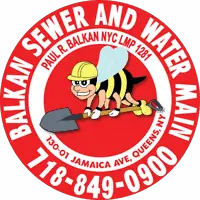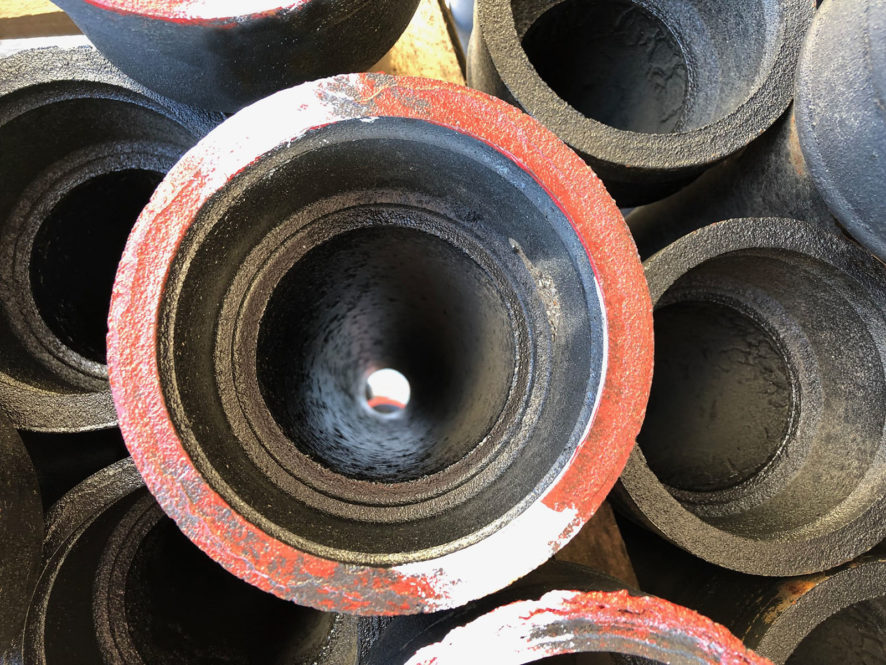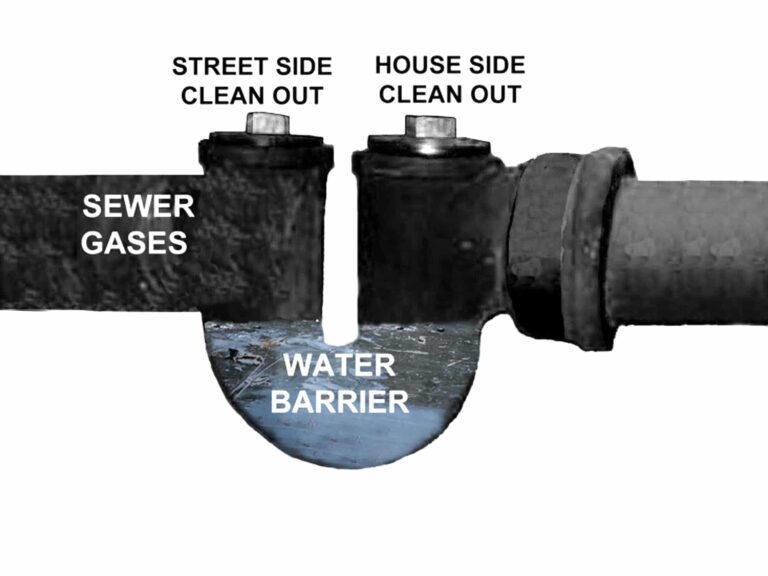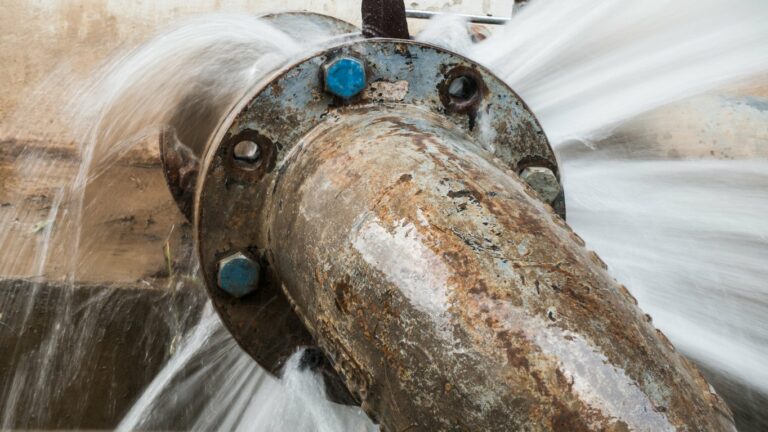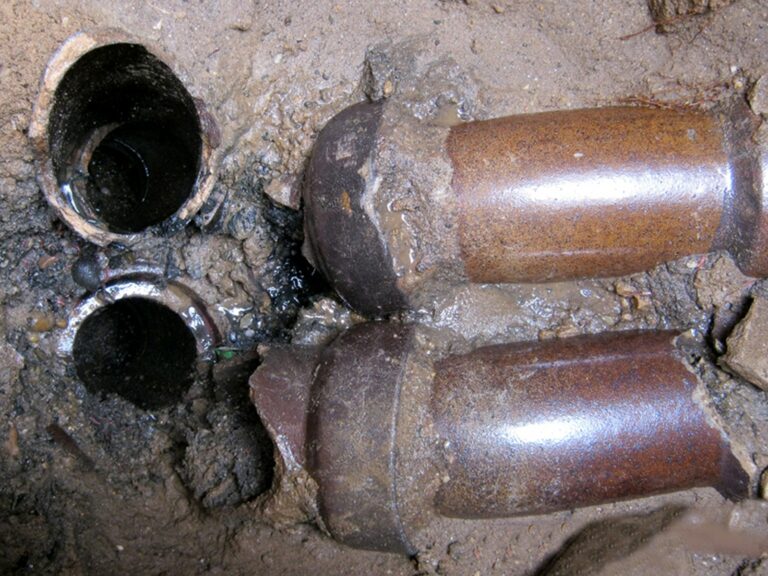Extra Heavy Cast Iron Pipe is a thick hub and spigot soil pipe made out of cast iron. It can also be referred to as a bell and spigot pipe. In other versions, it can be hubless, and known as no hub pipe. With bell and spigot pipe, each joint is connected using molten lead and oakum, or neoprene compression gaskets.
On the other hand, no hub pipe utilizes hubless coupling methods. Extra Heavy Cast Iron has additional wall thickness than Service Weight Pipe. As a result of its larger diameter, it cannot be readily joined to Service Weight Pipe, as the outside diameters are different. To join these two different classes of pipe, either molten lead and oakum, or specialty gaskets must be used.
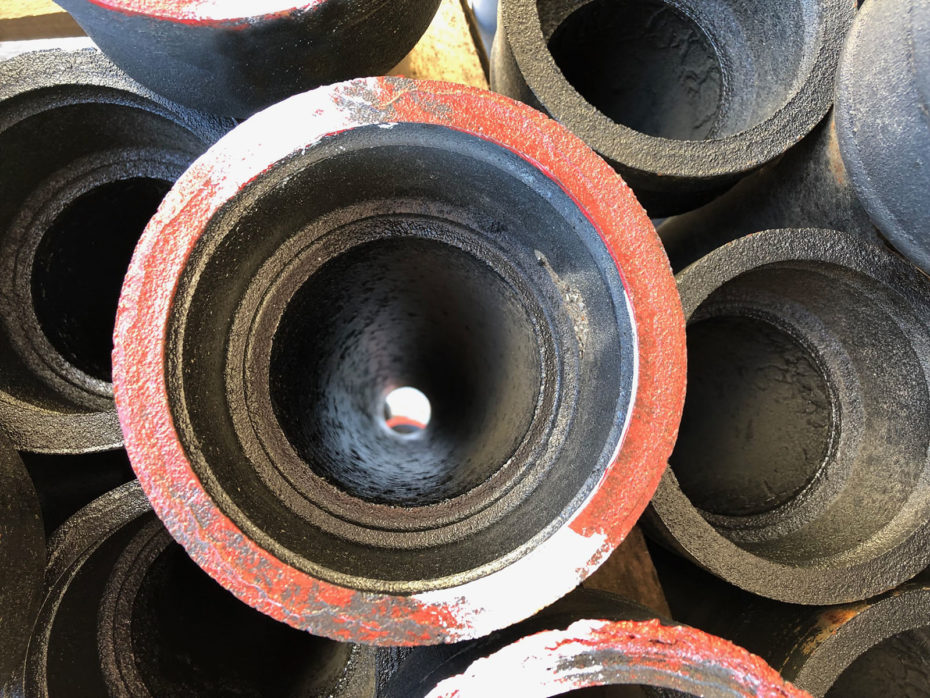
Common Types of Cast Iron Pipe Couplings
The two conventional methods of pipe joinery in the U.S. are Hub (Bell) and Spigot, and Hubless (No Hub). The main difference between the two is that Hub and Spigot joints have a spigot interconnected with a hub.
No Hub Cast Iron Soil Pipe
On the other hand, Hubless pipes are joined on the outer surface of the pipe by utilizing a neoprene sleeve with a stainless steel shield. These are commonly referred to as No Hub clamps. These clamps fit over the end of the pipe and are tightened using a torque wrench.
In Hub and Spigot connections, the plain end of the pipe fits into the hub and is sealed with a rubber compression gasket or molten lead and oakum.
Extra Heavy Cast Iron Pipe For House Sewer Work
Balkan Sewer And Water Main Service uses domestic extra heavy cast iron pipe produced by Charlotte Pipe exclusively. This high-quality pipe ensures you a long-lasting installation. Our 10-year unconditional guarantee on sewer line replacements gives you further peace of mind.
The Versatility of Extra Heavy Cast Iron Pipe
The variety of joining methods that can be implemented with Extra Heavy Cast Iron makes it extremely versatile. It is perfectly suited to plumbing systems below ground. This type of piping can be adapted for use in single and multi-story residential structures and larger structures as well.
Extra heavy cast iron is therefore also the material of choice for apartment and office buildings and for commercial or industrial applications. It can be utilized for interior as well as exterior applications.
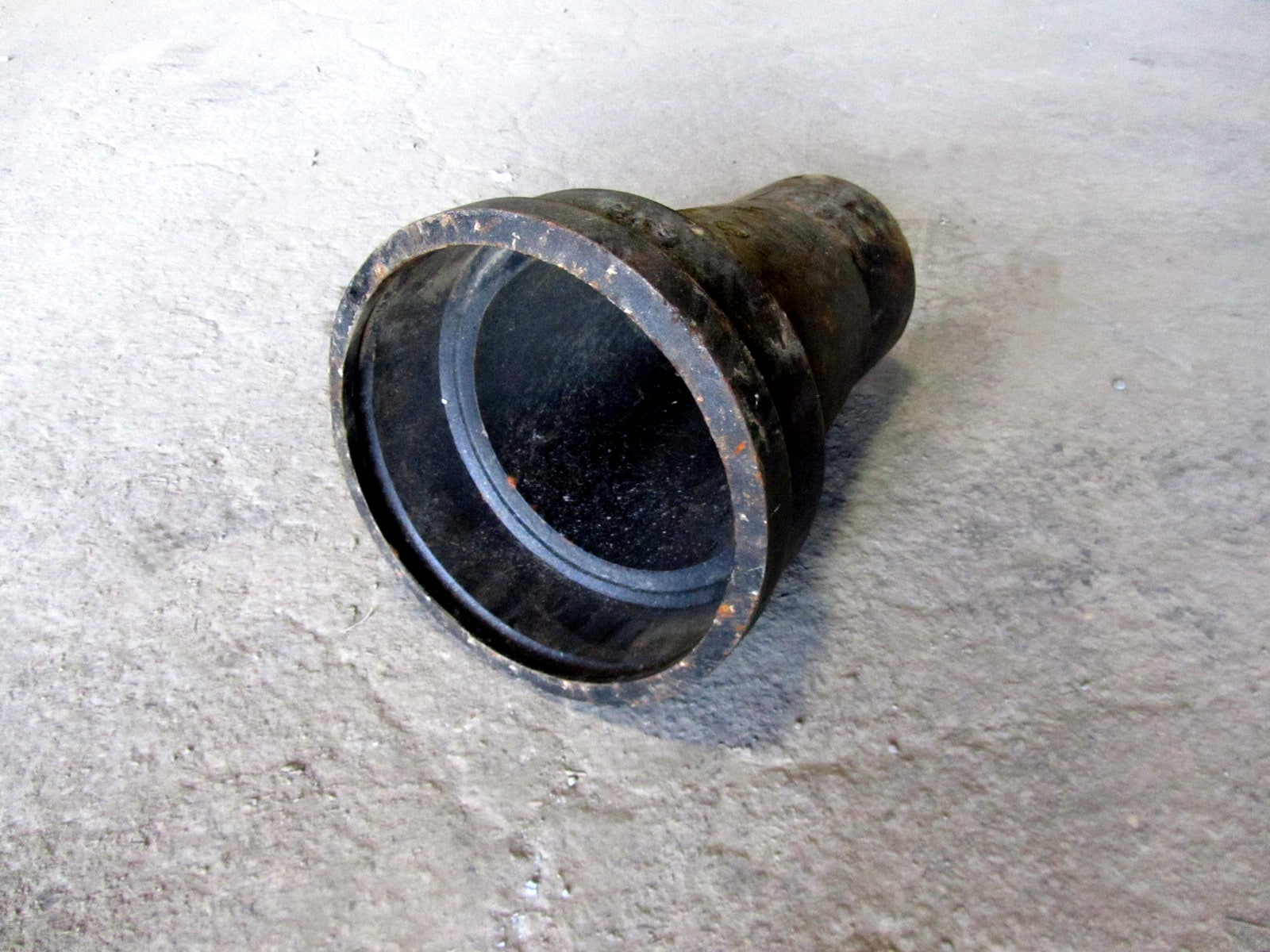
The Advantages of Extra Heavy Cast Iron Pipe
Extra Heavy Cast Iron Pipe (EHCI) is more durable than Service pipe because it is manufactured thicker and is, therefore, more robust. Cast iron resists abrasion, which makes it perfect for applications that will come into contact with sand, gravel, kitchen waste, and general suspended debris.
Cast iron pipe is more economical than stainless steel or PEX and unlike PEX, is not subject to deterioration from UV rays. While copper’s antibiotic properties may make it less susceptible to biofilm build-up, cast iron has superior damping qualities and doesn’t need to be soldered together.
Cast iron pipes also have two advantages over PVC pipes. They do not exacerbate fires or emit caustic fumes, as PVC does when combusting. EHCI can be changed to accommodate different angles after installation and can be modified at a later date if need be. All of these reasons validate why EHCI pipe is the material of choice for sewer line replacement work.
Quality Characteristics
A good piping system will comply with certain rules and regulations. Extra Heavy Cast Iron Piping exhibits superior performance over other materials when used for drainage, waste removal, venting, and sewer applications. Iron inherently possesses the following characteristics that make for optimal plumbing performance.
- Strength
- Rigidity
- Longevity
- Noise and Vibration Dampening Qualities
- Non-combustible
- High Load Bearing and Crush Value Tolerance
- Temperature Tolerance
- Corrosion Resistant
- Low Degree of Expansion/Contraction
- Abrasion Resistant
Performance of Extra Heavy Cast Iron Pipe
The eleven characteristics mentioned above are essential for a plumbing material to perform optimally under all conditions. Strength and rigidity are important when it comes to weight-bearing and exterior applications. Cast iron sewer pipes and storm drains that are in high-traffic areas benefit from cast iron’s strength and ability to withstand high crush values.
The Charlotte Pipe And Foundry Company is a major supplier of cast iron and PVC pipe products in the USA, and the sole supplier used by Balkan Sewer And Water Main.
How To Protect Cast Iron Pipe From Corrosive Soil Conditions
Most soils are not corrosive to cast iron piping. In areas where soils that are corrosive to iron and ferrous alloys exist, you must protect the iron pipe with proper trench improvement materials. These materials include limestone or sand.
Another alternative is to encase the pipe with concrete. You must further protect the piping and all of its fittings with either linear low-density polyethylene or high-density cross-laminated polyethylene depending on the temperature environment of the application.
Cast Iron Piping is preferable in residential and multi-use buildings because of its noise and vibration-dampening qualities. Its fire and abrasion resistant qualities also make it a good choice for use in high-density urban dwellings. In many jurisdictions cast iron pipe is a code requirement. Contact Balkan Sewer And Water Main for more information on how extra heavy cast iron pipe is the right material for your needs.
